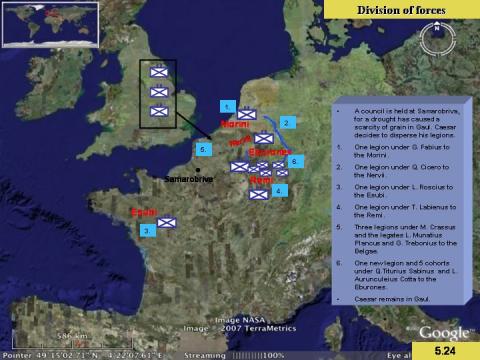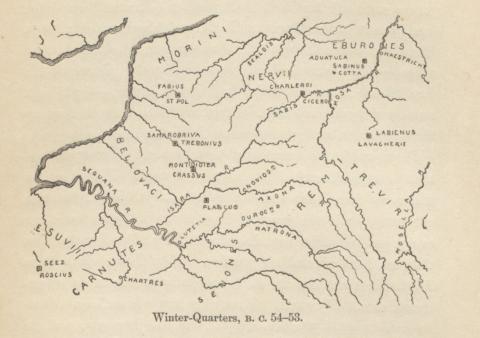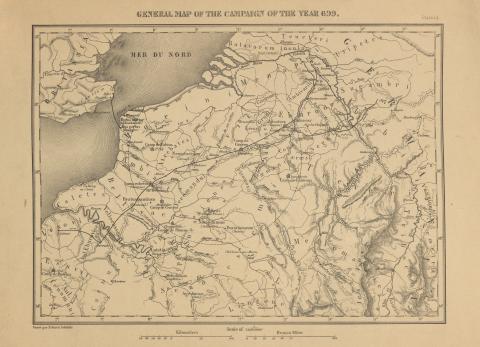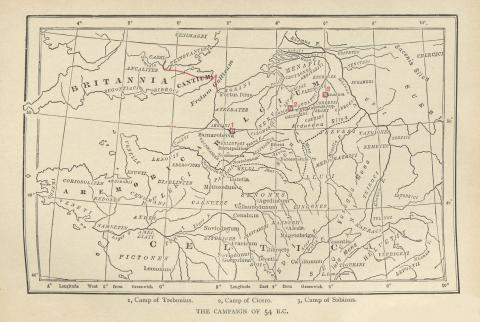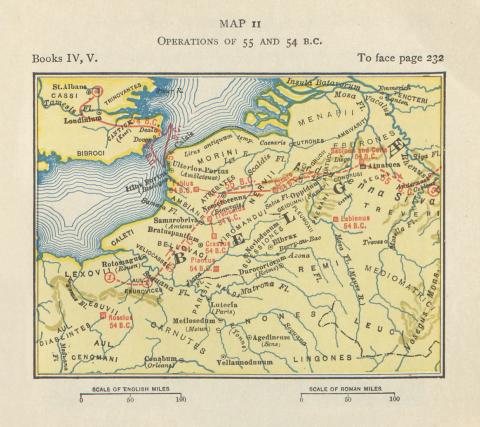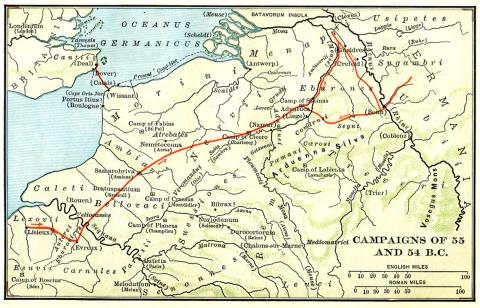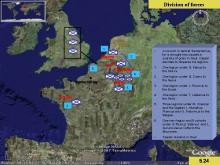Subductīs nāvibus, conciliōque Gallōrum Samarobrīvae perāctō, quod eō annō frūmentum in Galliā propter siccitātēs angustius prōvēnerat, coāctus est aliter āc superiōribus annīs exercitum in hībernīs collocāre, legiōnēsque in plūrēs cīvitātēs distribuere. Ex quibus ūnam in Morinōs dūcendam C. Fabiō lēgātō dedit, alteram in Nerviōs Q. Cicerōnī, tertiam in Esubiōs L. Rōsciō; quārtam in Rēmīs cum T. Labiēnō in cōnfīniō Trēverōrum hiemāre iussit. Trēs in Belgīs collocāvit: eīs M. Crassum quaestōrem et L. Munātium Plancum et C. Trebōnium lēgātōs praefēcit. Ūnam legiōnem, quam proximē trāns Padum cōnscrīpserat, et cohortēs V in Ebūrōnēs, quōrum pars māxima est inter Mosam āc Rhēnum, quī sub imperiō Ambiorīgis et Catuvolcī erant, mīsit. Eīs mīlitibus Q. Titūrium Sabīnum et L. Aurunculēium Cottam lēgātōs praeesse iussit. Ad hunc modum distribūtīs legiōnibus facillimē inopiae frūmentāriae sēsē medērī posse exīstimāvit. Atque hārum tamen omnium legiōnum hīberna, praeter eam quam L. Rōsciō in pācātissimam et quiētissimam partem dūcendam dederat, mīlibus passuum centum continēbantur. Ipse intereā, quoad legiōnēs collocātās mūnītaque hīberna cōgnōvisset, in Galliā morārī cōnstituit.

